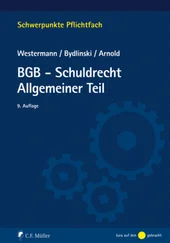He looked at his watch. Five minutes.
NEAR KALER, KENTUCKY
JANUARY 20
4:23 P.M.
THE DRIVER HIT A CURVE ON THE NARROW, BACK-country gravel road at fifty miles an hour. The rear end of the Humvee fishtailed through the turn, narrowly missing two big trees that formed a corner where the road veered sharply left. They were descending a hill single file, engines groaning in low gear as helicopters swept overhead, looking for snipers.
By Atkins’ estimate, they had about seven minutes to get as far as possible beyond the hills that sheltered the Golden Orient.
Four miles!
They weren’t going to make it. Not over this kind of muddy, rugged terrain, where the road was knotted with switchbacks. There was no way. They rounded another curve, then made a tight S-turn. The side of the road fell sharply forty feet into dense woods, then dropped some more, becoming a sheer cliff. Far below them, a band of silver twisted through the trees. A shallow stream or river.
“How many miles have we gone?” Elizabeth asked. She sat next to Atkins. Both were clutching the Humvee’s roll bar, trying to hang on. They were pitched up and down, rocking like a carnival ride as the tires banged over ruts and washouts.
“Maybe two,” Atkins said.
The driver, focused completely on keeping the vehicle from spinning out, didn’t answer. The windshields were streaked with mud.
Strung out in a ragged line, the convoy hit the floor of a valley, smashed through a wire fence, and cut across a freshly plowed field, the tires throwing up rooster tails of reddish-brown dirt. If they could get beyond the next line of hills, they’d be out of danger.
Provided we’ve calculated correctly, Atkins reminded himself. He hoped that Guy Thompson’s people hadn’t screwed up when they ran their figures.
They’d concluded that a one-megaton bomb detonated at two thousand feet would have only minimal effect on the topography. The risk of significant ground subsidence extended up to a half-mile from ground zero. But they weren’t absolutely certain of these conclusions. There were too many exceptions and variables. Some of the one-megaton underground blasts at the Nevada Test Site had cracked and settled the earth up to two and three miles from the bomb crater.
Atkins had a more serious worry: if they’d made a mistake about the venting hazard, huge amounts of radioactive debris, mainly dirt and crushed rock, would be hurled miles into the sky.
And at the top of his fear list: What if the explosion actually triggered a major earthquake instead of stopping it? What if it ignited other quakes along the many faults that ran like deep furrows through the unstable basement rock in the Mississippi Valley?
From the start, that had always been their biggest concern. Fear of that possibility was partly to blame for Walt Jacobs’ death. It’s what had pushed him—Atkins was sure of it—to try to sabotage their effort. They’d never know for sure, or how much the death of his family had affected his reason.
The Humvee banged up into the air. All four wheels momentarily leaving the ground. The earth had shaken again and the floor of the valley started moving in undulating waves two and three feet high. They’d hit one of them, then another.
A jet of muddy water, black sand, and lignite or “wood coal” blasted into the sky. A foaming geyser shot into the air fifty yards to their left.
A sand blow. First one, then another, and another. All of them shooting thick fountains of muck as high as trees.
The convoy changed directions to steer away from it. The ground was churning, shaking. Yet another sand blow erupted, throwing up a stream of water, silt, and cottony-white sand. One bubbling hole after another opened up in the field. One of them was about a hundred feet wide.
“You better push it!” Atkins shouted to the driver. “We’ve got to get across before the whole field liquefies.” If that happened, it would be like trying to cross a lake of quicksand. They’d never make it.
“John, over there!” Elizabeth said, pointing to steam billowing from a narrow fissure that had split the ground open. A couple feet wide, the tear ran up the side of the facing hill like a scar.
“Did the bomb explode?” Elizabeth asked.
“It’s not time yet.”
Elizabeth, like Atkins, knew these were all preshocks leading to a major earthquake. Strain energy was rapidly building toward a rupture. When this one hit, the tectonic explosion was going to be immense.
The convoy was climbing the hill, the studded, oversize tires churning up the soft ground. Elizabeth and Atkins were snapped back in their seats as the Humvee rolled over a fallen tree.
They were almost to the crest.
Another fifty yards, and they’d be out of the danger zone.
BOOKER gripped the blaster firmly in both hands. In the last strong shock, the roof had collapsed at the far end of the tunnel.
The detonator cord still ran free.
He sat against the wall, trying to steady himself and think clearly.
Neutron continued to hold up the weakened section of roof in the middle of the tunnel, but it was starting to sag and the cracks were spreading. It wouldn’t be long before it caved in on them.
It was almost time, a matter of a few seconds.
Booker put his head back against the wall, closed his eyes, and took a breath. Images of his wife and daughters, of places they’d gone, tracked before him.
His two daughters.
He focused on them and remembered their faces as first and second-graders and how cute they looked in their blue-and-white tartan school uniforms. He’d kept those faded pictures in his wallet for thirty years.
They were bright, good girls, far better than he’d deserved. He’d stayed close to them. One taught English literature at the University of Tennessee at Knoxville. The other was an architect in Kansas City. He hoped they’d understand the decision he’d made and why.
He glanced at his watch and started counting down from ten….
Five…
Four…
Three…
Two…
One…
He gave the blaster a sharp clockwise turn with his right hand.
THE Humvee barreled over the top of the hill. Wheels spinning, it slid through a ragged clearing in the trees smashed open moments earlier by a heavy personnel carrier. Back in control, the driver started down the other side but immediately hit his brakes, skidding to a stop that spun them around in a sharp half-circle.
Atkins had heard the order to halt come over the Humvee’s dashboard radio.
He knew what it meant: it was almost time for the explosion.
“Get out!” the driver shouted. Soldiers were jumping from the open backs of troop carriers. They were lugging rifles and packs and running hard down the side of the hill, some stumbling and rolling, then getting up and running again.
Atkins and Elizabeth got out of the Humvee and started after them. There was no cover, no shelter. They were going to take whatever happened out on open ground. It was as good as any other place, Atkins thought. At least they’d be able to see each other in case someone needed help.
A gorgeous valley spread open before them. The hills in this part of southwestern Kentucky were wooded. The fields lush with thick grass. Atkins couldn’t help but think, as he often had before, that it was fine horse country. Then he realized something that he’d overlooked for days. He hadn’t seen a single horse or cow or sheep. The fields in this part of the Bluegrass State had been abandoned by both man and beast.
They saw the president at the bottom of the hill. He’d just stepped out of a half-track. Soldiers had already formed a protective shield around him. Others had moved up into the hills and taken defensive positions. Helicopters buzzed the ridgeline at dangerously low altitude.
Читать дальше












